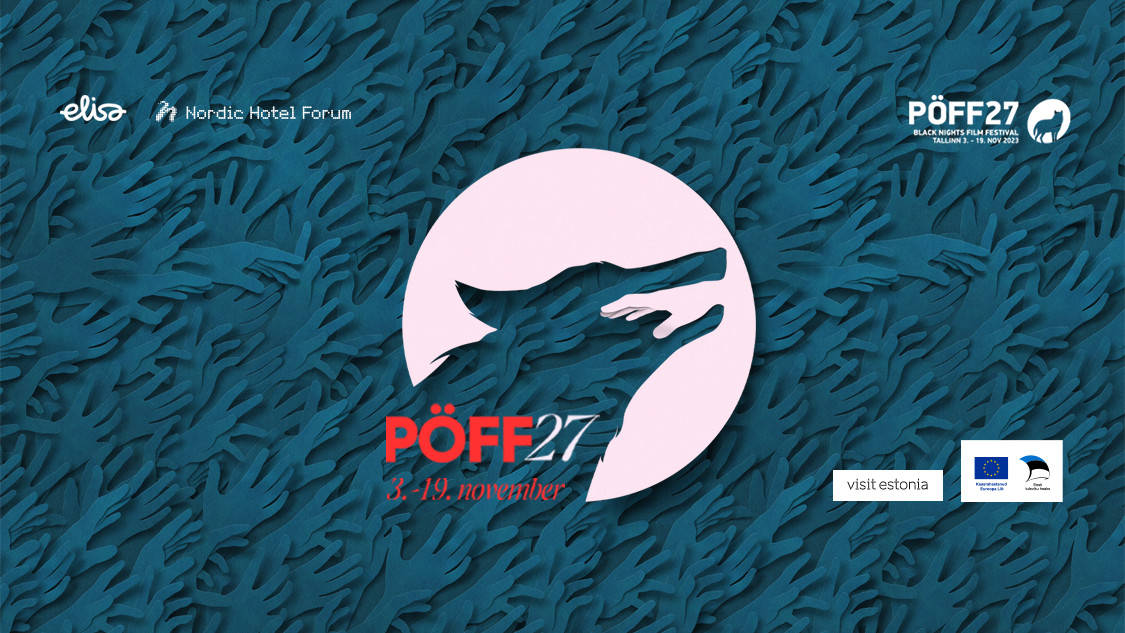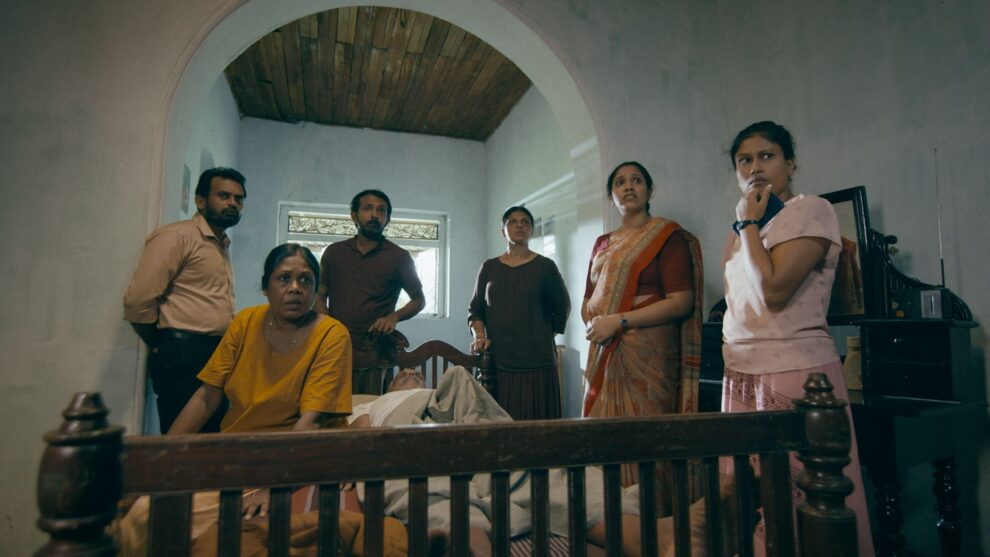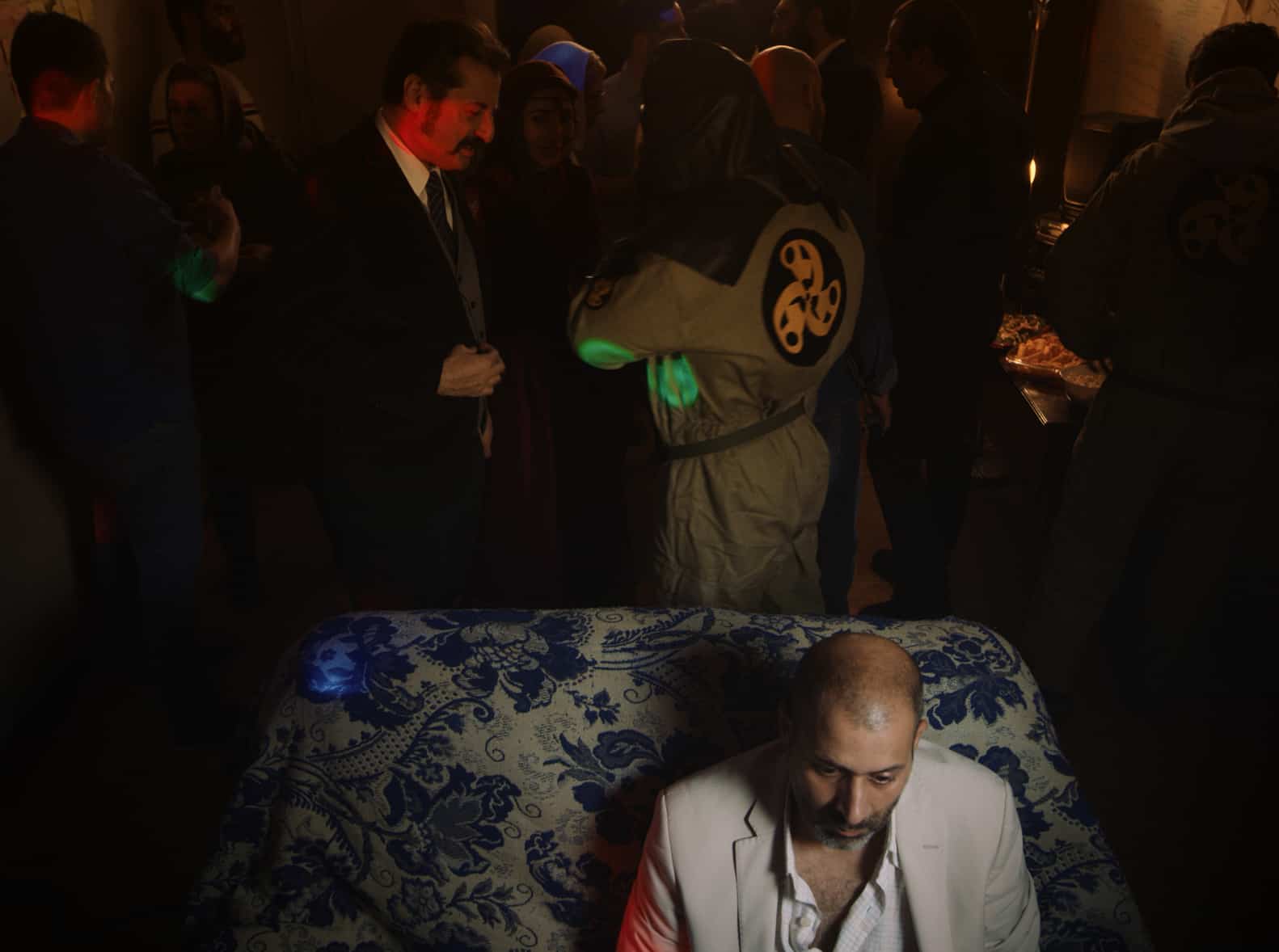As we have mentioned a number of times this year, Sri Lankan cinema seems to be taking a big step forward, with a number of titles standing out. One of the crucial elements these films implemented is a rather unique sense of humor, which can be described as both dead pan and self-deprecating regarding the issues the country faces. As such, it was inevitable that at some point, a comedy would also arise, with Illango Ram being the mind behind the situational, Shakespearean, stage-play like film that “Tentigo” is. The movie had its world premiere in Tallinn, where it won the Special Jury Award.
“Tentigo” screened at Tallinn Black Nights

The patriarch of a family dies suddenly and his sons are not only shocked by his death, but also by the fact that the dead body has a permanent erection no one seems able to relieve. Fearing the shame that will come to the family, as much as the gossip of the chatterbox neighbor Kamala, the two brothers, and eventually more and more members of the family, try to find a way to solve the problem. Doctors, buddhist monks, voodoo practitioners, and coffin makers are asked for a solution but to no avail. Furthermore, as time passes, a number of secrets the father had are revealed, as much as the fact that different people knew different instances of him.
Check also this video
Taking the erection as his base, Illango Ram manages to make a number of comments regarding local society, mostly given through humor, although the subtle drama is also here. The way the different religious practices are part of everyday life is probably the most evident one, along with the whole concept of “what will people say”, which seems to torment the whole family. That the health system in Sri Lanka does not work particularly well is also obvious, while the concept of secrets and the fact that ‘you can never really fully know anyone' also comes to the fore. At the same time, the comments regarding human nature are also here, as we see people lying, blackmailing, gossiping, feeling shame, regret, jealousy, keeping secrets etc, in an aspect that seems to present almost the whole gamut of people's mentality.
Despite the realism and pointedness of the comments, Illango Ram manages to retain a very appealing hilarity throughout the movie, which is also the main source of entertainment here, and actually carries from beginning to end. At the same time, though, it is somewhere here that the most significant issues of the film also appear, with the concept being rather milked (pun not intended), becoming the source of too many episodes and situations, while the stage-play approach of the movie, with the heavy-dialogue and the majority of its duration taking place within the same setting, moving in the same path. The secrets and particularly the appearance of a not so unexpected guest are also quite cliched, concluding the narrative issues here.
Ram's own cinematography results in a number of interesting shots, particularly the ones where the camera is placed on the ground looking upwards, while the way the impact of the erection in the people standing around the deceased is depicted actually intensifies the narrative approach here, highlighting the bonds of the family. Aathan Sivananthar's editing results in a relatively fast pace, but, as mentioned before, the movie does last too long and is based too much on its central premise.
Priyantha Sirikumara and Thusitha Laknath in the roles of the two brothers highlight their differences and similarities quite nicely, with the moments they ‘fight' being among the most entertaining in the movie.
“Tentigo” has a number of merits but the directorial approach, as much as the writing needed a bit more polishing. As a whole, however, and for most of its duration, it makes sense, while it will be interesting to see where Ram moves following this movie.














